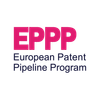When drafting a patent application for a chemical invention, it’s usually necessary to consider whether the core of the invention is a new product, a new process, or both. If there is potential for pursuing patent protection for both the product and the process, it is worth considering the pros and cons of claims to these aspects.
What is a product claim?
Product claims provide coverage of that product per se, i.e. however it is made. Whilst it may seem that this is of course the type of protection that you would want, such claim breadth can come with associated difficulties during examination. Given that product claims are broader, there are usually more cited documents that need to be differentiated from during prosecution. Also, your patent claim may include limitations on certain properties of your product. If those properties are not tested in the cited documents, you may need to carry out experimental work to prove that the products in those earlier documents do not achieve the properties of your claim. Such testing can be expensive and time consuming to carry out. Your Murgitroyd attorney can advise on how plan such experimental work.
What is a process claim?
Process claims can provide coverage for the method by which a product is made. In many countries, e.g. the UK, they also provide coverage for products “obtained directly by” the claimed process. Process claims are inherently narrower in scope than product claims, as they generally do not cover an identical product made by a different route. However, this narrower scope means that patent applications containing only process claims can be easier to take through to grant.
Thus, when preparing a patent application for a new chemical product and process, it is worth considering the associated challenges with pursuing protection for the product and process aspects. Product claims can be broader in scope, but are likely to be more difficult to prosecute. Process claims usually provide a narrower scope protection, but can be easier to take to grant.
For further information please contact Paul Andrews, Prosecution Team Lead.





















